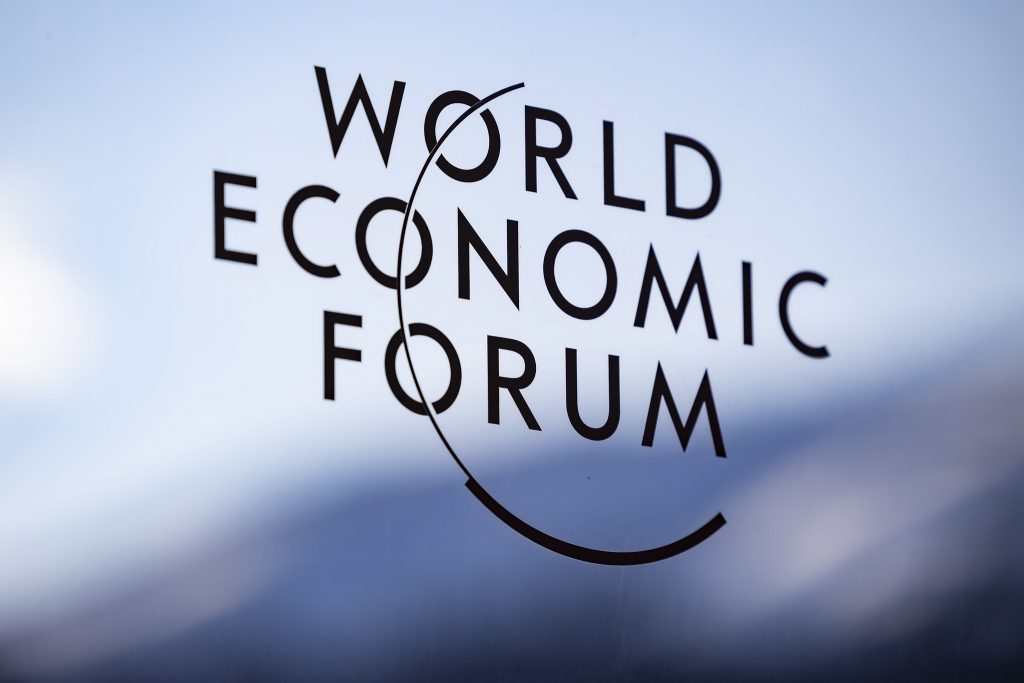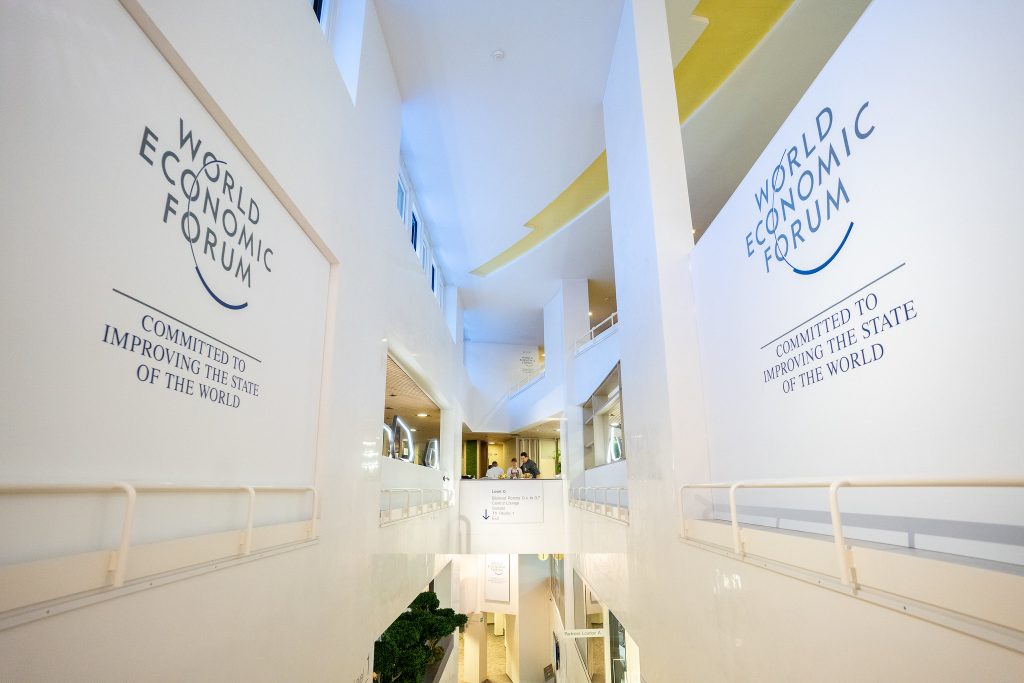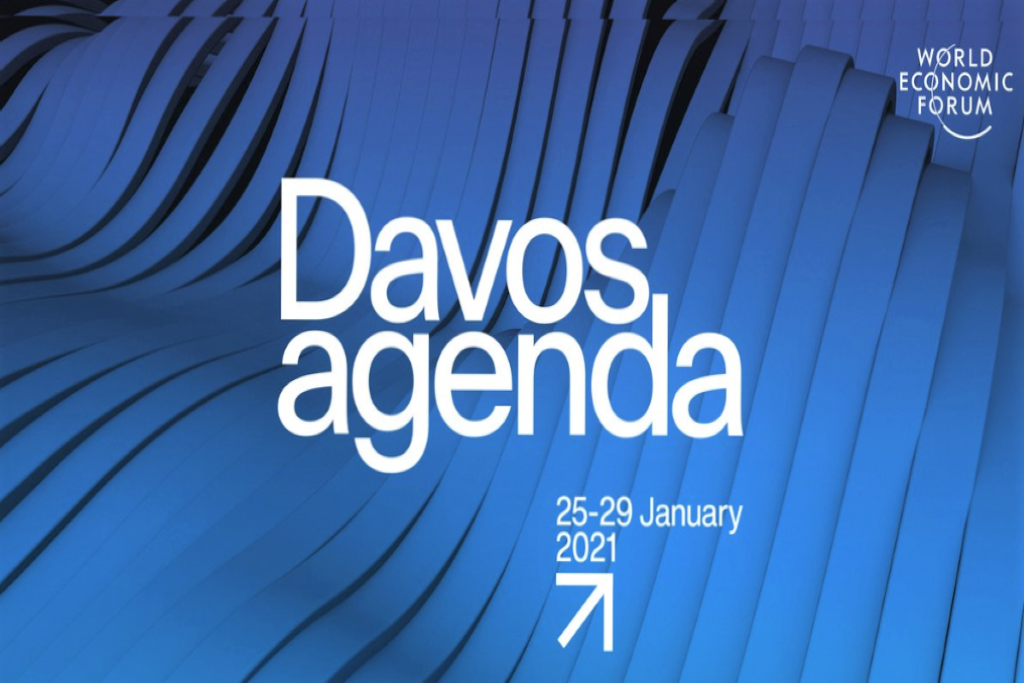New technologies such as artificial intelligence (AI), 3D printing and robotics are changing the expectations and requirements of the modern workforce to enable individuals, companies and governments to harness the power of these new technologies and make it work for them.
Against this backdrop, representatives of our leadership team are participating in the 50th Annual Meeting of the World Economic Forum in Davos, to help shape the conversation around the future of work.

The five forces shaping the future of work
The world of work is being rapidly reshaped by five key megatrends:
-
Geopolitical and economic uncertainty: forces such as economic volatility, political instability, and climate change are affecting how businesses operate in our globalized world;
-
Digitisation: The world of work is being reshaped by digital transformation. Companies and their workforces are racing to adapt to this at an extremely rapid pace;
-
Sociological change: All around the world, historical norms are being challenged, and new paradigms and expectations are arising;
-
A new demographic mix: Many countries in the developed world are experiencing aging workforces, as people work longer; at the same time, over half the global population is under 25 years of age;
-
Skills imbalances: The new world of work is demanding rapid reskilling of workforces all around the world to keep pace with technological change
The impact of these megatrends is increasing the need for new skills, new ideas, models of training and new policies. Employers are butting up against new expectations from their workforces – employees today want to work when, where, and how they wish, in an environment that matches their skills, interests and compensation needs. At the same time, employers need access to an evolving set of skills and leadership capabilities, to create flexible and agile workforces.
To put it simply: our greatest challenge will be the scarcity of talent and the increasing skills gap. Research suggests that 375 million employees (14% of the global workforce) will need to switch roles by 2030.
In response to this challenge, the Adecco Group has taken a leadership position on four key platform areas:
Reskilling
For companies to remain competitive, they need to transform their workforces now, and ensure they have the right skills to lead in the future. The era of a job for life has been replaced with the concept of lifelong learning: companies need to embrace this model and constantly invest in their workforces to keep pace with the rapid speed of skills evolution.
Today, the Adecco Group announces a new global commitment to upskill and reskill five million people around the world by 2030. We are proud to be playing an active role to ensure that individuals can fulfill their potential in this changing world of work and that companies and institutions have access to the talent they need to capitalise on the future opportunities ahead of them.
Lifelong Learning
Education systems need to be better aligned to the emerging skills employers need, with a distinct focus on soft skills as well as upskilling technical capacities. Traditional education no longer prepares young people for the current and future world of work. Additionally, the era of a job for life has been replaced with the concept of lifelong learning: companies need to embrace this model and constantly invest in their workforces to keep pace with the rapid speed of skills evolution. The Adecco Group’s CEO for One Month program is designed to address some of these gaps.

Workforce investment
Companies must be better incentivised to reskill, rather than layoff, to build the workforce they need for the future. To address this, the Adecco Group has proposed three key reforms for change: the Training Fund Model; the Employability Account; and the Amortisation Model. These reduce barriers to more workforce investment and help us bridge the skills gap. Read more about our policy proposals here.
New Social Contract
A new social contract must be struck between business, government and workers. It will be built on the foundation stones of lifelong learning and reskilling. It will engage business, government and workers alike, integrating new digital skills and forms of work, and the new diversity of work and life. Read more about our policy position here.
These are the messages that we are taking with us to the World Economic Forum’s Annual Meeting. These are the solutions we will be engaging with the world’s business, government and civil society leaders to adopt.
For more updates on the world of work from Davos, follow us here:
Other events at the World Economic Forum
What: Alain Dehaze will discuss the challenges of today’s youth entering the labour market – Alliance For Youth event
When: Wednesday – 22 January at 15:00
How: Watch live via Facebook
What: The launch of the Global Talent Competitiveness Index 2020
When: Wednesday – 22 January at 12:30
How: Follow the updates via our Instagram stories
What: Alain Dehaze at the Accounting for Human Capital panel
When: Friday 24 January at 10:30
How: Follow live here
What: Alain Dehaze live on CNBC
For more updates follow our social media



